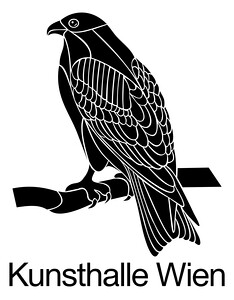Beweis zu nichts (Proof of Nothing)
February 5–April 30, 2017
Museumsquartier, Museumsplatz 1
1070 Vienna
Austria
Hours: Tuesday–Sunday 10am–6pm,
Thursday 10am–8pm
Beweis zu nichts (Proof of Nothing) is the title of a poem by Ingeborg Bachmann that Bertolt Brecht subtly rewrote. It’s also the title that Marcel Odenbach has given to his new film, and furthermore, it’s the overarching title of Odenbach’s solo show at Kunsthalle Wien where this film will premiere.
The exhibition features a selection of films, video installations, and collages from his oeuvre that complement the first public screening of Beweis zu nichts (Proof of Nothing), 2016, and the central themes that underscore it. Odenbach’s film focuses on a monument Brecht, together with sculptor Fritz Cremer, designed for the former concentration camp Buchenwald. In 1952, they won the competition to design the memorial, but only in 1958 was The National Buchenwald Memorial inaugurated. The lengthy debate over an appropriate monument was not so much historically or aesthetically driven, but rather politically motivated: the aim was to show how a better, more socialist Germany had arisen from conflict and sacrificial death. Odenbach approaches how memory and history can be visualized, reinterpreted, or indeed ideologized.
An earlier film by Odenbach, Im Kreise drehen (Turning in Circles), 2009, is also dedicated to a memorial site, the former concentration camp Majdanek in the Polish city of Lublin. Here too, attention is given to the materialisation of collective memory and the commemoration of victims across generations. Often concerned with Germany’s National Socialist past, Marcel Odenbach’s work deals with migration, freedom of expression, and social justice as recurring threads of inquiry.
Kurz und bündig (short and precise), 2016; Meldungen (Notification), 2016; and Die gute Stube (The Parlour), 2011, count among the collages exhibited, which take up the principles he uses to construct his films: to allow micro and macro perspectives to collide and converge. While the universal view presents an immediate motif, the close up view details numerous individual images: pieces of a puzzle.
Durchblicke (Clear Views), 2007, for example, spanning almost 15-meters-long, initially portrays a dense tropical jungle. On closer inspection, it is comprised of numerous photos reflecting Africa’s colonial history. The second level, which sits at one remove from our immediate perception, demands that we look at it intensely, where it is open to complex reference structures. In this regard, Odenbach’s entire oeuvre calls out to address a viewer who is free from preconceptions and able to take on the present in its entanglement with the past.
Marcel Odenbach *1953 in Cologne. Between 1974–79, he studied architecture, art history and semiotics at the Technical University, Aachen. Since 1976, he has been working with various media including video, tape, installation, drawing, and performance. Between 1992–97 he was professor for Media Art at the State University of Design, Karlsruhe, and from 2001–2010 at the College of Media Arts, Cologne. Since 2010, he has been a professor at the Art Academy Düsseldorf.
Curator: Vanessa Joan Müller
Publication: In conjunction with the exhibition, a publication will be released with texts by Jörg Heiser, Nikolaus Hirsch, and Maria Muhle; Sternberg Press, Berlin
Stay connected:
Please check our website for regular updates on our program.
For further information please contact: Katharina Murschetz
T +43 (0) 1 5 21 89 1221 / presse [at] kunsthallewien.at


